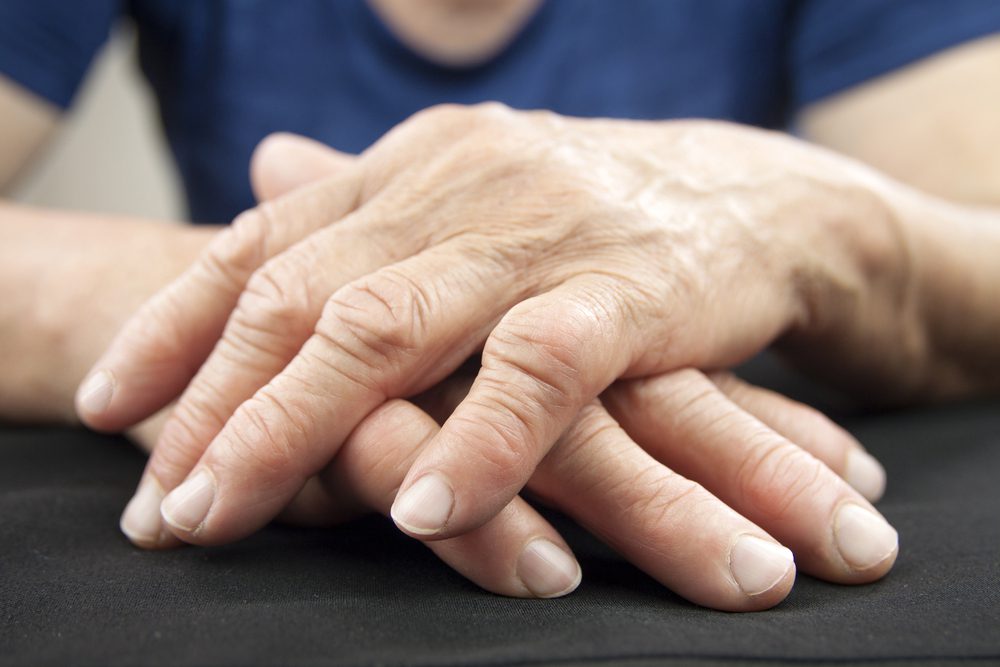
Rheumatoid arthritis might have many symptoms, but the most common are stiffness, painful joints, and fatigue. Given the fact that this disease might cause inflammation in many other body parts, you might confuse its symptoms and believe they have nothing to do with rheumatoid arthritis.
But some of these are signs of more serious complications that could put your organs, or even life, at risk. If you happen to notice any of these symptoms, the last thing you should do is try to deal with them on your own. The safest thing to do is to call your doctor, especially if you recognize more than 5 of these signs.
Subtle Symptoms of Rheumatoid Arthritis
Fragile bones
Your bones become weaker because of rheumatoid arthritis and medications that treat it, such as steroids. When both of these two are in the equation, you are way more likely to break a bone when you fall. However, by keeping an active life, exercising, and walking, you can enhance your bone strength.
Also, in some patients with old rheumatoid arthritis or even other rheumatoid disorders, stress fractures and insufficiency fractures aren’t so uncommon. They might be caused by osteoporosis that the patient is stuck with after suffering from corticosteroid therapy, joint stiffness, or deformity of their joints.
Luckily, a minimum of 30 minutes of daily walking could prevent all that.
Chest pain
Patients who suffer from rheumatoid arthritis are more at risk of developing heart disease. So as time passes, there’s a possibility of having build-up plaque in their arteries. Doctors are calling this atherosclerosis, and it can lead to a heart attack. Another common symptom is also chest pain.
Rheumatoid arthritis is a possible reason for suffering from another painful heart problem known as pericarditis. Pericarditis happens when thin layers of tissue around your heart are inflamed. You can experience severe chest pain that’s similar to a heart attack. While it might not be a heart attack, if you feel this pain, call 911.

Dryness
Rheumatoid arthritis can cause dry eyes, which makes you more likely to get an eye infection. People with this disease are at risk of developing another autoimmune condition known as Sjögren’s syndrome, which is an autoimmune disease.
Your immune system is attacking some parts of your body by mistake. The glands that make tears and saliva are attacked, which causes a dry mouth and dry eyes. You might also have dryness in other places that need to be moisturized, like the nose, throat, or skin.
Sjögren’s syndrome might attack other parts of the body too, such as joints, lungs, kidneys, digestive organs, nerves, and blood vessels.
Eye problems
Although this complication is rare, rheumatoid arthritis can cause sclera, which is an inflammation in the white part of your eye. Two of the most common symptoms are redness and eye pain. You can also experience blurry vision.
Dry eyes can get infected, especially if they’re left untreated. Suffering from dry eyes can damage the cornea, the clear, dome-shaped surface of the eye that makes your eye focus. They can also be a symptom of Sjögren’s syndrome.
If you have been experiencing any of these symptoms, visit your ophthalmologist for a proper evaluation. Early treatment can prevent these vision-threatening complications.
Fever
Fever usually sets in when there’s an infection in the body. Rheumatoid arthritis medications such as biologics and steroids are good against the disease, but they also slow down the immune system. While they’re efficient when it comes to joint pain and swelling, it’s a bit harder for your body to fight off unpleasant surprises such as the flu.
Rheumatoid arthritis makes you prone to infections, just because it directly affects your immune system. You might also experience mild fever, as a symptom of a rheumatoid arthritis flare up. This is the moment when you know that the inflammation has gotten out of control. If your fever gets too high, the first thing your doctor will do is to look for an infection.

Difficulty hearing
Rheumatoid arthritis is known to increase the risk of conductive and sensorineural hearing loss. Conductive hearing loss occurs when there’s some damage to the outer and middle parts of the ear, which makes it difficult for the ear to properly conduct the sound.
Sensorineural hearing loss is when the damage in your ear is deeper, and it affects the inner ear and nerves. This specific type of hearing loss doesn’t allow the brain to interpret sound. You can also experience mixed hearing loss, which means you’re at risk of suffering from both types of hearing impairment.
Up until this day, researchers haven’t succeeded in finding out why rheumatoid arthritis causes hearing loss.
Mood changes
And as if it weren’t enough, rheumatoid arthritis is also linked to depression, anxiety, and many other mood problems. Given the fact that this disease causes a lot of pain, fatigue, and even stiffness that makes everything harder, depression and anxiety are expected to be presented.
They might also come from the pain caused by inflammation. For example, some people with rheumatoid arthritis suffer from fibromyalgia. This disease is responsible for causing muscle pain and sometimes even leads to depression and anxiety.
On top of that, stress makes all of your symptoms way worse. If you notice that you experience constant mood swings, talk to your doctor.
Numbness or tingling
Rheumatoid arthritis can affect the small nerves located in your hands and feet. You might feel your hands or feet a bit numb or as if you’re being stuck on pins and needles. If these little blood vessels in your hands or feet are shutting down, your fingers or toes might feel colder or number.
They might even change color when there are colder temperatures outside, turning either white, red, or blue. Rheumatoid vasculitis, which affects blood vessels, is responsible for causing numbness, tingling, burning, and pain in your hands and feet caused by damaged nerves.
If you feel like your hands or feet are numb, or if you notice that they drop or go limp when you try to raise them, visit your doctor.
Stomach pain/ indigestion
Rheumatoid arthritis and the medicines used to treat it are directly linked to mouth and stomach ulcers, stomach bleeding, acid reflux, diarrhea, and constipation. Painful diverticulitis, which is the scientific term for inflamed pouches in your GI tract, and colitis, also known as the inflamed colon, are also in the equation when you have RA.
RA drugs such as NSAIDs often cause ulcers or an upset stomach. Also, sometimes belly pain might come as a sign of RA complication, also known as rheumatoid vasculitis. It’s when inflammation grows in your blood vessels. Among other symptoms, you can also experience weight loss and a lack of appetite.
Difficulty breathing
If you experience trouble breathing and you don’t know why, maybe you should blame rheumatoid arthritis. Some people that suffer from this condition, especially men who smoke or used to, are more likely to suffer from serious lung problems.
When rheumatoid arthritis inflammation is causing scar tissue to form in your lungs, you will notice chronic cough, shortness of breath, weakness, and a constant feeling of tiredness. RA can also inflame the tissue that lines the lungs, and this may lead to shortness of breath or pain and discomfort when you breathe.
If you have unusual breathing problems or coughs, visit your doctor right away.
If you enjoyed reading this article, we also recommend reading: 9 Shocking Reasons Why Your Stomach Hurts All The Time






